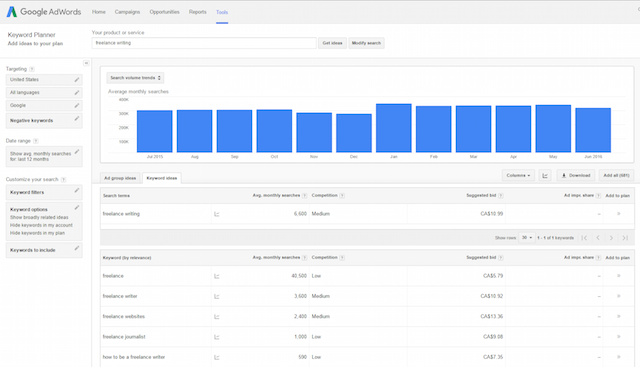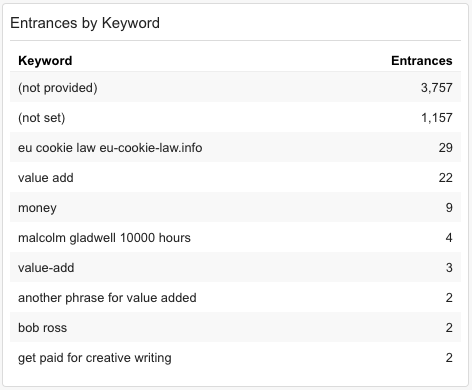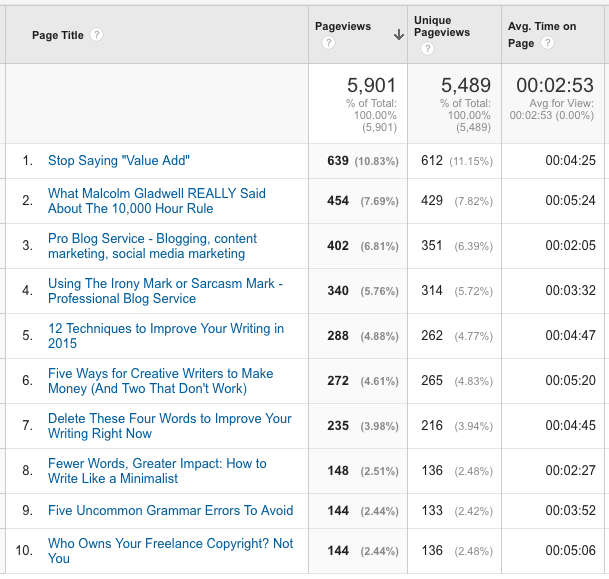When I first started freelance writing many years ago, I launched my own blog. I did a keyword search and crammed all the best terms onto my page, just like all the other freelancers.
I wrote several posts about the importance of writing, good grammar, and powerful language. Just like all the other freelancers.
And I got zero calls. Just like all the other freelancers.
My mistake was using my blog as a way to show off my skills as a writer. I wrote about writerly things, shared writerly ideas, and showed off writerly sentences. What I should have done was focus on the things potential clients were looking for. They wanted writing services, not grammar rules.
What I was doing was about as effective as giving away stress balls and Frisbees at trade shows.
No one roots through their kids' toy box for a network security provider. And my clients don't say, "I need someone to write my brochure. I wonder if anyone has written about whether 'alright' is an acceptable word." (Although it is.)
Instead, I should have focused my articles on my writing specialty. Whether it's grants, magazine articles, brochures, or speech writing, every good freelancer should specialize. They should promote their niche through their blog, use the right keywords, and write top-notch articles to support them.
Now that I'm an agency owner, my website focuses on our niche: business blogging. I write about content marketing, corporate blogging, and the latest research in those areas. I'll write about how blogging can help a specific industry or field. And I'll sometimes write about a language pet peeve, just because it's my blog, and I can do that if I want.
But the most important thing I do, after focusing on the quality of my writing, is focus on the keywords.
The best way to do a keyword search is to spy
Google your competitors, both in your chosen niche and your geographic region. Check out their websites, and identify the keywords and topics they're ranking for. (Tip: You can use a tool like SEMrush for this.)
Read their websites closely to learn more about them. Then check their source code and their meta name="keywords" to see what they focus on, if they happen to still be using it.
Next, use a keyword search tool to see which keywords are gaining more traffic. Try SEMRush's Keyword Tool, Wordstream.com's Keyword Tool, or Google’s Keyword Planner. Look at the keywords for your niche, and see which variations get the most search traffic.

Remember higher-trafficked keywords will have more competition than lower-trafficked terms. That means, for example, you would have to spend a lot of time and money to rank highly in searches for "freelance writing." But you could rank better if you focused on "writing services for tax attorneys."
And now, you can ignore almost everything I just said, because it doesn't really matter.
Think in ‘topics,’ not ‘keywords’

We no longer know what the best keywords are. Google has quit telling us which keywords bring people to our page. They stopped providing that information altogether. Either that, or I'm totally winning Google for the phrase "not provided."
Instead, Google wants topics, not keywords and exact keyword phrases.
I don't have to switch between "business blogging professional" versus "professional business blogger." I don't have to focus on half an audience that searches for the former, while the other uses the latter. And then spend nights worrying that people are searching for "business blog writing professional."
This is the great thing about Google's big SEO overhaul. Gone are the days of obsessing over variations of keyword phrases. Gone are the days of writing different articles for singular and plural versions of the same keyword.
Instead, Google understands syntax and language. They know that blogging = blogger = blog and writing = writer = wastes a lot of time on Facebook.
This means they want us to focus on topics, and not individual keywords. If you write for tax attorneys, you can talk about attorneys and lawyers, and Google will figure it all out.
So if you want to know the best topics to look for, look at your analytics for your most visited pages.

This is a page from my own work blog. The top result is something I wrote five years ago about how I hate the phrase "value add" with a white-hot passion. I can see that 639 people have visited it. I also know that all 639 people came in through Google.
I don't know which keywords brought people to my page, but I can infer they came because of the phrase "value add."
To test the theory, I open Google in a private/incognito window, and then search for the phrase value add. There, I can see my page ranks fifth for the term. That tells me people are finding my article and clicking through.
Instead of living and dying by keywords, focus on content
When I wrote that piece, I had no idea it would rank in the top five results at all, let alone five years later. Yet no matter how hard I try, I still can't crack the top 100 for "ghost blogging" or “business blogging.”
Don't get me wrong; keywords are important. They'll give you a direction to start your SEO, and they'll be instrumental in your site's success. Without the right keywords, potential clients will never find your site. Just don't obsess over keywords so much that you forget to create the stellar content that will actually impress clients. That's always your best bet.
Picking topics for new sites
When you’re kicking off a new site without any existing content, you can’t just look at your analytics to see what you should publish. To me, this is the best place to be, because you get to set the tone. Everything is up to you, and you’re going to plot the course this website will take for the next several years.
First, start with what people want to know. Search in your email archives for the phrases "how do I. . .?" and "why should I. . .?" Those are the most important questions people have wanted to know about, so important that they took the time to email you. Hopefully you took the time to answer. The fact that a few people are asking these questions means there are probably a lot of people with the same questions.
Next, do a keyword search for your industry on Yahoo! Answers and Quora. If people are asking questions on those sites, again, it’s safe to assume that other people want the information. Write up thorough answers and publish them as blog posts.
Finally, ask your existing customers and prospects about some of the first things they ever wanted to know, going all the way back to the beginning of their knowledge of your field. These are probably the same topics you think "everyone already knows that, we don’t need to cover it." I’ve found that those topics "everyone knows" end up being some of the most visited pages on a company’s blog.
Your turn
If you’re getting ready to establish your own online presence, you’ll find a wide range of tools at GoDaddy, from the easy-to-use free Website Builder to the robust functionality of WordPress Websites.







